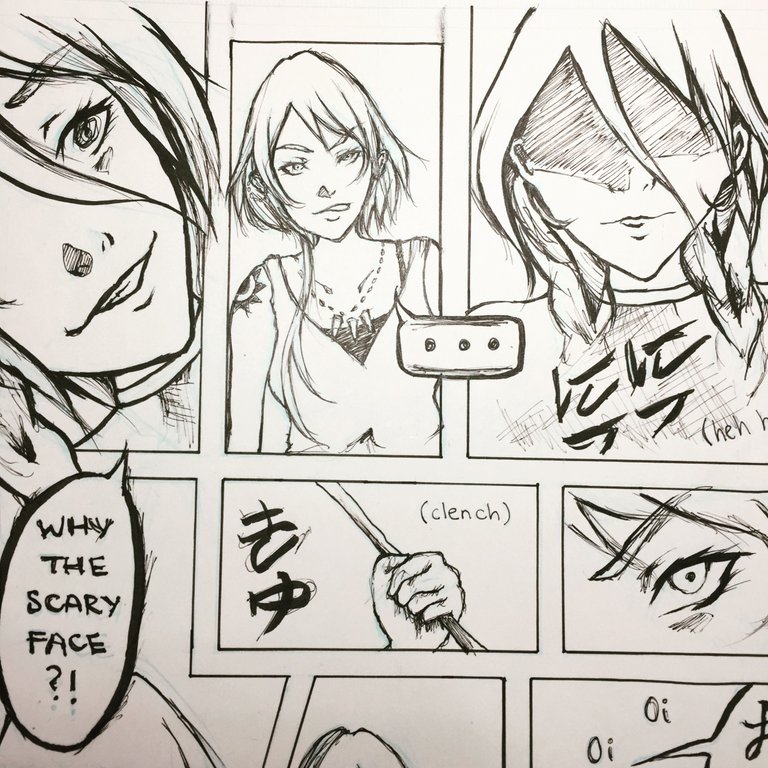I had no clue what to do when I was first starting out, but I can certainly help you!
I usually start using a blue mechanical pencil. Not too many people are aware that they exist.
You can buy the lead refills here or check out the sketch I made with them here.

This pencil lead is ideal because it, for the most part, will not show up on scanners. Many artists I know adore the fact that it reduces the need to erase.
Next you need pens to finalize your lines. You may gravitate towards the use of ink and calligraphy pens; however those are rather difficult to master. I suggest the use of standard drawing pens unless you already own such tools.
There are two kinds of pens I will talk about: drawing pens and brush pens.
Drawing pens are needle-pointed, and their size variety makes them good for bold lines to delicate details.
Brush pens are what they sound like: they're pens shaped like brushes. The larger ones are as big as markers, though. Brush pens require more practice, but when used correctly are great for those who draw loose. They're ideal for bolder lettering (ex. sound effects) and backgrounds (ex. tree leaves).
I am in no way affiliated with the company JetPens, but they have wicked good guides that have helped me out over the years, so I'm passing this information on.
Check out their drawing pens guide here.
Check out their brush pens guide here.

All links are to either Steemit or JetPens (an online store for art supplies).
Excluding the first image, all pictures are from JetPens.


There really is nothing like comics to tax the limits of drawing and imagination.
On the tools aspect, I'm a fan of Microns and the Pentel Pocket Brush Pen, although I do tend to work digitally a lot more nowadays. I've been thinking about gravitating back to bristol board and ink though... there's nothing quite like a physically finished page. I imagine I'd still do layouts and rough drawing digitally, that's where the ability to undo, play around, and transform are immensely useful.
I'd love to work digitally some day, too. But for now I'll stick to my Le Pen Technicals ;)
Thanks for sharing this information👍! I think it'll be really useful to people who are still interested in creating comics through traditional media. It's definitely not easy and like you said, requires all of the concentration and skill that you have.
Yup! I could never find the information I needed at first. It was a friend who helped me out, who I am very thankful for. Though they probably have no idea haha.